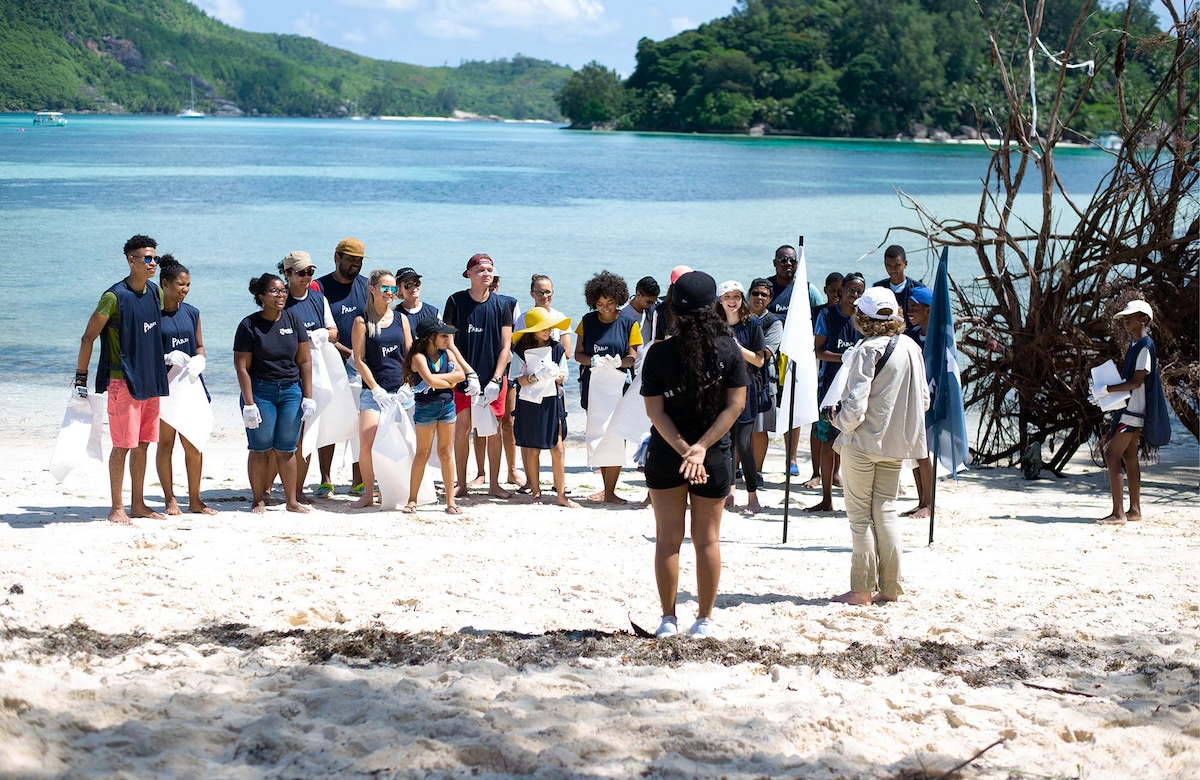Ecowatch
Seychelles Beach Cleanup Shows Potential for Citizens to Tackle Marine Trash

Volunteers help clean up litter from beaches in East Africa’s Seychelles islands. Parley Seychelles

Why you can trust us
Founded in 2005 as an Ohio-based environmental newspaper, EcoWatch is a digital platform dedicated to publishing quality, science-based content on environmental issues, causes, and solutions.
More than 1,220 volunteers have cleaned up nearly 9.9 tons of marine litter from beaches in East Africa’s Seychelles islands, in what researchers called an impressive example of citizen science.
The cleanup took place on 52 beaches across 10 islands from June 2019 to July 2023, a press release from University of Plymouth said.
“This study, and the years of work that led to it, highlight the potential of citizen science and the positive impacts it can have. As an islander myself, I know how people living in the Seychelles rely on the ocean for every part of their lives. But because we are a collection of remote islands, there are challenges in managing waste and we also have to deal with large quantities of items coming from elsewhere,” said lead author of the study Alvania Lawen, a student in environmental management and sustainability at University of Plymouth, as well as Parley for the Oceans’ country manager for Seychelles, in the press release.
The study, “Beached plastic and other anthropogenic debris in the inner Seychelles islands: Results of a citizen science approach,” was published in Marine Pollution Bulletin.
The volunteers picked up trash ranging from rubber and foam to plastics and metals. Of those, 13,525.4 pounds were non-plastic items and 6,250.1 pounds were made of plastic like bottles, food packaging and weathered ocean debris.
“Initiatives such as the beach clean-ups give people the opportunity to be part of the solution, and to tell their own stories about how they are being impacted by environmental issues,” Lawen said in the press release.
Ocean currents bring waste to the islands’ beaches, where it becomes trapped by vegetation.
In some places, much of the trash was recorded as having been produced locally, but as much as 75 percent was determined to have originated elsewhere.
The Seychelles are made up of 115 islands in the Indian Ocean. There are roughly 100,000 permanent residents, but the region’s coral reefs, beautiful beaches and nature reserves with rare animals like the giant Aldabra tortoise draw an influx of visitors each year.
The researchers said the study shows some of the obstacles island communities face with waste management, as well as how locals can help address the issue.
“As is often the case with environmental pollution, this is a clear example of waste generated in one place having significant impacts elsewhere. The quantity of litter collected during the beach cleans is astounding, and a testament to the efforts of citizen scientists living and working in the Seychelles,” said co-author of the study Dr. Andrew Turner, an associate professor of marine and environmental biogeochemistry at University of Plymouth, in the press release.
Turner emphasized the importance of the countries that generate the trash taking responsibility for it.
“However with climate change anticipated to increase the quantity and severity of storm surges, and plastic and other waste being generated in increasing quantities, items will continue to wash up on the beaches unless other, highly populated and industrialized Indian Ocean nations engage in more sustainable waste management,” Turner added.
Subscribe to get exclusive updates in our daily newsletter!
By signing up, you agree to the Terms of Use and Privacy Policy & to receive electronic communications from EcoWatch Media Group, which may include marketing promotions, advertisements and sponsored content.
Source
Disclaimer: No copyright infringement intended. All rights and credits reserved to respective owner(s).










